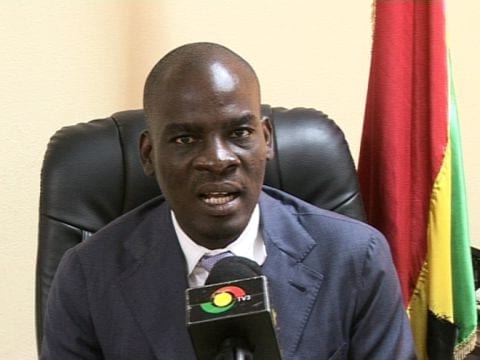Minority Leader leader Haruna Iddrisu is unhappy with the verdict of the Supreme Court that a Deputy Speaker who is also a Member of Parliament can vote.
The Minority in Parliament expressed disappointment over the Supreme Court ruling on the First Deputy Speaker of Parliament counting himself.
The apex court on Wednesday dismissed an application to pronounce as unconstitutional, Joseph Osei Wusu’s action of counting himself for the purposes of quorum.
Justice Jones Dotse ruled that the Deputy Speaker of Parliament participation in voting was constitutional.
Private legal practitioner and law lecturer, Justice Abdulai subsequent to the November 30, 2021 clash between Speaker Bagbin and his First Deputy after the latter overturned an earlier vote of the House rejecting Government’s 2022 Budget invited the Supreme Court to pronounce as unconstitutional, Deputy Speaker, Joseph Osei Owusu’s action of counting himself for the purposes of quorum.
He argued in the context of articles 102 and 104 of the 1992 Constitution that the Deputy Speaker was not permitted to count himself for the purposes of quorum, since he had neither an original nor a casting vote as Speaker presiding.
But the 7-member panel of justices ruled that the Member of Parliament for Bekwai exercised his right constitutionally, TV3’s Laud Adu Asare who was in court reported.
The SC struck out the standing order 109(3) which says a Deputy Speaker or any other member presiding shall not retain his original vote while presiding.
It furthered that the Deputy Speaker can be counted during the quorum for decision making according to article 104(1)
Justice Jones Dotse noted that the full ruling will be made available on Friday, March 11.
Addressing a press conference in Parliament to react to the ruling, Haruna Iddrisu said “Our attention has been drawn to a very disappointing ruling of the Supreme Court of Ghana which more or less will amount to a judicial interference in time tested Parliamentary practice and establishment convention.
“Everywhere in the world in civilized democracies including the United Kingdom the presiding officer’s vote is discounted. So it is not for nothing that article 102 provides that a person presiding shall have no original nor casting vote. The Supreme Court, to put it aptly, this ruling is judicial support for E-levy.”
He added “Form today maybe there will be a new definition of what first and second Deputy Speaker is. Maybe them they don’t deserve us accorded the office they occupy.”
Meanwhile, the First Deputy Speaker of Parliament, Joseph Osei Owusu has said that the Supreme Court ruling on whether or not a Deputy Speaker can vote has cleared all misunderstanding in the application of the Standing Orders of Parliament.
Addressing a press conference in Parliament on Wednesday March 9, he said “Whatever misunderstanding that people have I think the Supreme Court has cleared it.”
The private legal practitioner Justice Abdulai who filed the application at the Supreme Court challenging the decision of the First Deputy Speaker to count himself as Member of Parliament while at the same time presiding, said the verdict of the highest court of the land is victory for Ghana’s constitution.
He said the ruling has brought clarity on the law.
“I am not surprised because I am a lawyer, I know that going to court, there are only two outcomes, it is not like a football game where there will be a draw, it will either be a win or a lose.
“But in this case, I think no one lost, the constitution wins, the people of Ghana win, this is the best best decision that I think we should have had, it puts clarity on the law despite the fact that some of the reliefs I was seeking were not obtained.
“There is a far-reaching decision that has been made by the Supreme Court today to the extent of striking out portions of the Standing Orders.”
By Laud Nartey|3news.com|Ghana


